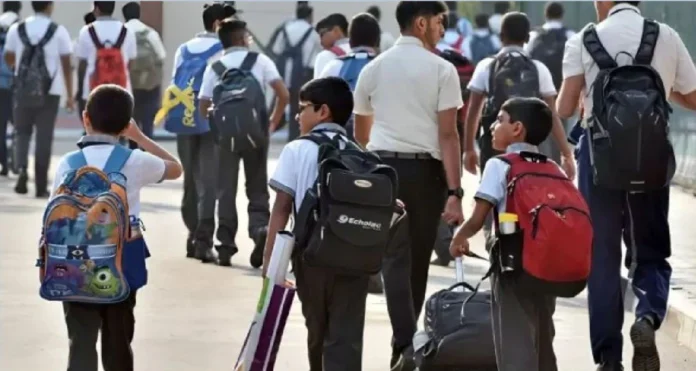By Vikram Kilpady
Later this month, the Delhi Assembly is expected to debate and pass the Delhi School Education (Transparency in Fixation and Regulation of Fees) Bill, 2025, a legislation aimed at curbing arbitrary and often exorbitant fee hikes by private schools—a longstanding grievance among parents.
The Bill is being brought forward by the Delhi government under Chief Minister Rekha Gupta, following a wave of parental protests against fee increases—some as high as 50 percent to 70 percent—across elite private schools in the capital. These schools, often founded by charitable trusts post-Independence and more recently by corporate entities, are accused of hiding unjustified hikes under the guise of auxiliary charges like uniforms, transport, or new activity-based dress codes.
The urgency for legislative intervention was spurred by a 2024 Delhi High Court order, which effectively stripped the Directorate of Education (DoE) of its authority to prevent fee hikes without school-by-school approval. In the Court’s interpretation of Section 17 of the Delhi School Education Act, 1973, the DoE cannot issue blanket circulars restricting fee increases. This has left the field wide open for schools to act unilaterally, pushing many parents to the brink of financial strain amid an already gloomy economic climate.
This development also presents a political opportunity. The Bharatiya Janata Party, now governing Delhi, is using the issue to target the Aam Aadmi Party (AAP) for allegedly ignoring fee hikes during its tenure while claiming improvements in government schools.
However, the AAP has hit back, calling the bill itself a smokescreen. Delhi AAP president Saurabh Bharadwaj argues that a clause requiring 15 percent of parents to formally complain before action can be taken effectively stymies lower-income families who may struggle to mobilize support.
Despite political squabbling, it’s worth noting that Delhi’s few fee regulations have historically been court-driven. A 1998 Delhi High Court ruling in a public interest litigation allowed parent and DoE representation in the fee determination process—a precedent that inspired states like Maharashtra, Tamil Nadu, Haryana and Uttar Pradesh to enact more robust school fee regulation laws. For example, Maharashtra allows a 15 percent hike every two years, beyond which three-fourths of parents must consent.
In contrast, Delhi’s fee problem is complicated by land. Many private schools occupy plots leased at subsidized rates from public agencies like the Delhi Development Authority (DDA) or Land and Development Office (L&DO). The original premise: in exchange for cheap land, schools would operate on a non-profit model and keep fees affordable. But liberalisation changed the game. These schools, though ostensibly charitable, now function with profit margins that could rival corporations.
The 2025 Bill proposes stiff penalties—up to Rs 10 lakh for fee hikes without approval—and even derecognition for repeat offenders. Importantly, it bars schools from retaliating against students whose parents complain, including withholding results, expulsion, or classroom access denial.
To vet and approve fee changes, the Bill introduces a three-tiered regulatory system—beginning at the school level with a committee composed of parents, teachers, and representatives from SC/ST, OBC, and women’s groups. These members will be chosen by lottery. Appeals can then move to district and state panels.
While this bureaucracy-heavy structure appears comprehensive, education experts remain skeptical, calling it unnecessarily complex and prone to delay. The Bill includes nearly 20 evaluation criteria—ranging from infrastructure and academic performance to financial metrics—which experts fear may amount to mere box-ticking exercises.
Not all schools are created equal. Some run by religious or community trusts struggle to meet basic salary requirements and aren’t necessarily profiteering. But the Bill, if passed in its current form, targets the high-fee schools that have stretched the definition of “non-profit” far beyond its original intent.
If implemented with teeth, the Bill could bring some relief to Delhi’s beleaguered parents—though how much of that translates to real accountability remains to be seen.


